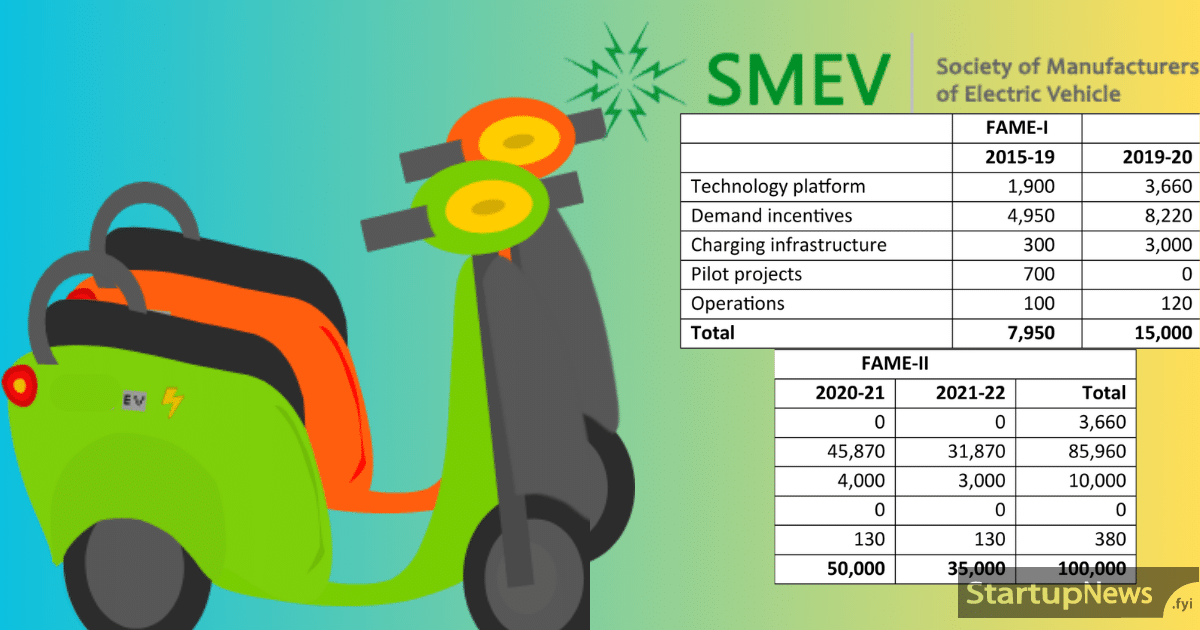The Society of Manufacturers of Electric Vehicles (SMEV), an industry body, has come up with an unconventional solution to address the impact of FAME-II subsidies on electric two-wheeler manufacturers that have been penalized for alleged misappropriation. In a letter to the Ministry of Heavy Industries (MHI), SMEV proposed a ‘compromise,’ suggesting that the government allow companies to recover subsidies from customers who have already purchased the vehicles.
FAME-II Fiasco and OEMs’ Penalties
Several OEMs, such as Okinawa Autotech, Hero Electric, Revolt, and Ampere, faced investigation in the FAME-II fiasco. Authorities probed them for allegedly not following minimum localisation norms and claiming incentives under the scheme. As a result, these OEMs transferred subsidies to customers, and authorities imposed penalties on them.
SMEV- Utilizing Previous Incident as a Precedent
SMEV based its proposal on a previous incident involving four OEMs. The OEMs were Ola Electric, Ather Energy, TVS Motor, and Hero MotoCorp. These companies were investigated for charging customers separately for chargers and software to claim FAME-II subsidies. The MHI asked them to repay INR 288 Crores to the customers they had overcharged.
SMEV suggests that if the OEMs can return the overcharged money to customers, they can also reclaim the overpaid money. This would ultimately benefit the OEMs.
Struggles and Challenges for E-Two-Wheeler Manufacturers
The proposed penalty repayments have put significant financial strain on OEMs. Hero Electric faces the highest repayment amount of INR 133.48 Crores, followed by Ampere with INR 124.91 Crores and Okinawa with INR 116.85 Crores. Society of Manufacturers of Electric Vehicles highlighted how the FAME-II scheme inadvertently favored premium EV bikes over commuter scooters, leading to a decline in the market share of players like Hero Electric and Okinawa.
SMEV- Daunting Task Ahead and Decline in EV Sales
SMEV acknowledges that the task of reclaiming subsidies from customers may seem daunting. However, the industry body believes that after analysis, it is merely a reversal of a similar action decreed by the government in the past. Amid the ongoing tussle between OEMs and the government, total electric vehicle sales have sharply declined since May, with two-wheeler EV registrations falling from over 100,000 in May to around 47,000 in July, according to Vahan data.
While SMEV’s proposal may face resistance from the government, it highlights the complex challenges faced by e-two-wheeler manufacturers and the need for a balanced approach to address subsidy issues. The industry will continue to seek solutions to ensure sustainable growth and competitiveness in the electric mobility sector.



![[CITYPNG.COM]White Google Play PlayStore Logo – 1500×1500](https://startupnews.fyi/wp-content/uploads/2025/08/CITYPNG.COMWhite-Google-Play-PlayStore-Logo-1500x1500-1-630x630.png)